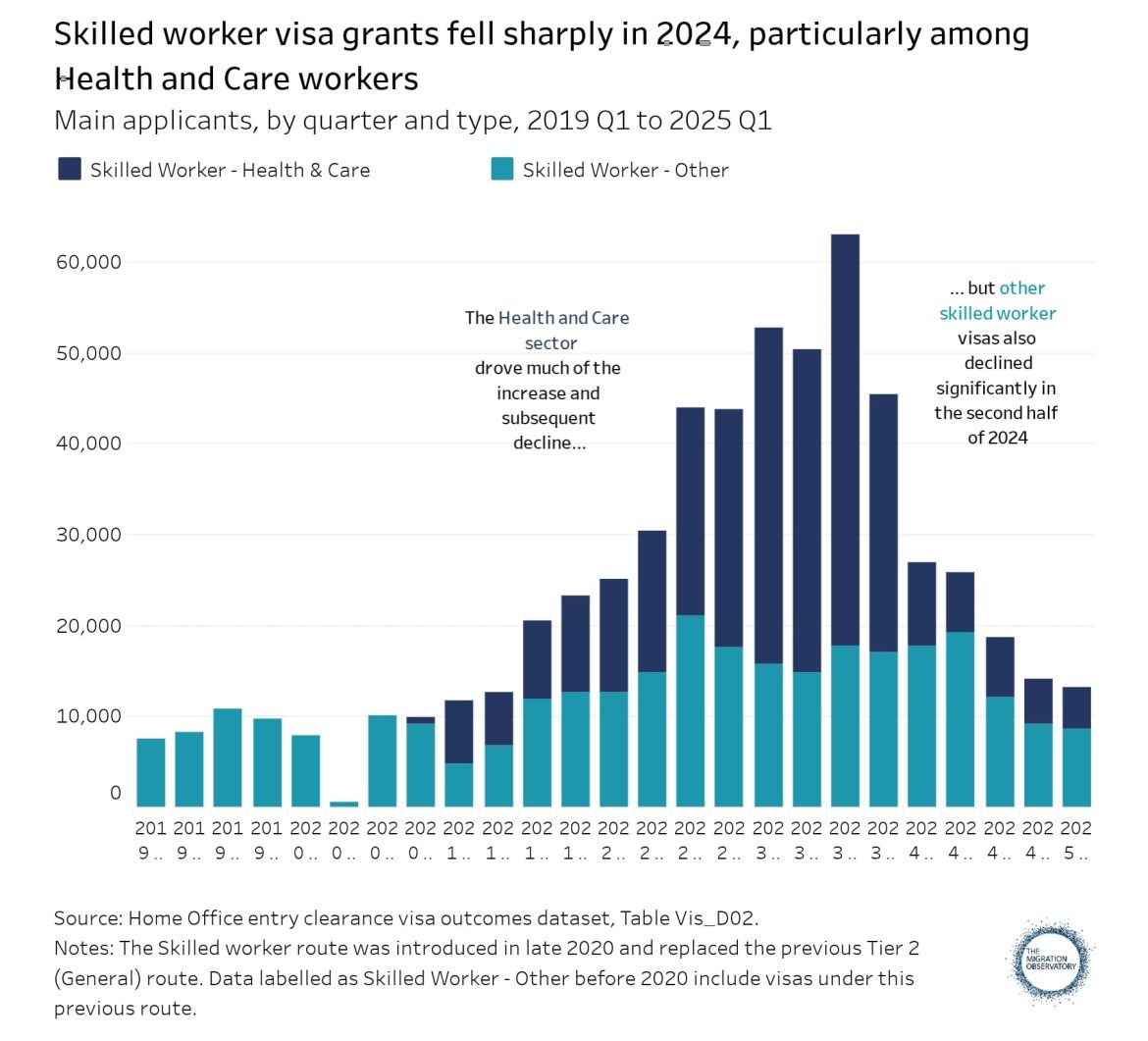The Labour Government is considering strict new limits on the number of skilled foreign workers UK businesses can hire, as part of a drive to cut net migration and reduce reliance on overseas labour.
Home Secretary Yvette Cooper has tasked the newly established Labour Market Evidence Group (LMEG) with reviewing the shortage occupation system. The review will explore whether to introduce annual or monthly quotas for skilled worker visas, with the aim of curbing recruitment from abroad while pushing employers to train more British staff.
Reducing Reliance on Foreign Labour
Under the proposals, sectors applying to employ skilled migrants would need to submit detailed plans for training UK workers to fill these roles in the medium to long term. Businesses that fail to meet agreed training targets could be barred from hiring from overseas.
The plan is part of Labour’s broader pledge to cut net migration by around 60,000 a year. Ministers argue this approach balances short-term economic needs with the long-term goal of building a self-sufficient domestic workforce.
Higher Skills Thresholds
The reforms also include raising the minimum qualification requirement for migrant workers from A-level to graduate level, reversing a policy introduced under Boris Johnson. This change would remove about 120 non-graduate occupations — including chefs, retail staff and certain care roles — from the overseas recruitment list by the end of next year.
Around 60 non-graduate roles deemed vital to Labour’s industrial strategy — such as welders, electricians, mechanics and construction workers — would be temporarily exempt. These sectors could continue hiring from abroad if they present credible training strategies for UK staff.
Salary Safeguards and Accountability
The review will also consider salary thresholds for shortage roles, with suggestions that pay could be set above market rates to discourage undercutting wages with cheaper foreign labour. Professor Bell, an adviser to the review, warned that industries failing to meet their commitments would face tough consequences:
“If a business pledges to train thousands and delivers only a fraction, they will lose the right to recruit from overseas. This is a carrot and stick approach — help is available during the transition, but there will be consequences for failing to invest in British skills.” The proposals mark a significant shift in UK migration policy, signaling Labour’s intent to tighten the system while pushing businesses to invest more heavily in domestic talent.
Written by: LIIE IMMIGRATION


